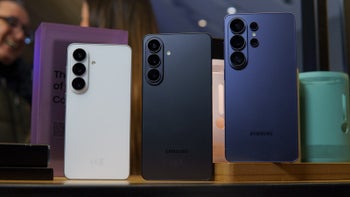Apple, super smart Siri and home robots? Yeah… sure, I’ll believe it when I see it
The iPhone works great, Siri doesn’t… yet, and until it does, I’m not holding my breath for whatever new gadgets Apple decides to toss our way.
This article may contain personal views and opinion from the author.

Apple, Siri and home robots? Yeah, it kind of all sounds like science fiction now, right? I mean, there’s news that the Cupertino tech giant will apparently launch some sort of home robot in 2027, along with a “super smart” Siri (we’ll wait until then?) and a smart home hub.
But reading all this, I kind of didn’t believe it. Lately, disappointment has been settling in my heart when it comes to Apple, and, well… I may have trust issues with it at this point. And yes, there’s a reason for that – especially when it comes to Siri updates.
Don’t get me wrong, I still use Apple products, and I probably will keep using them, because, well, for me, they just work (I don't use many AI features). But that doesn’t mean I’ve forgotten the Siri fiasco – or the fact that the iPhone 17 is about to launch next month while people who bought the iPhone 16 with the promise of a smarter digital assistant… still don’t have it.

So when I hear that this “upgraded” Siri might show up next spring at the earliest, my excitement for future Apple products is… muted. Because really, can they even be on time? Or work as promised? With disappointment and broken promises, trust takes a long time to rebuild.
Apple is clearly trying to regain its mojo, and maybe by 2027, we’ll have a home robot that actually moves around the house and feels alive thanks to Siri. Hopefully, this doesn’t push the Siri update even further back just to line up with the robot launch. But hey… we’ll see.
Reportedly, the tabletop robot looks like an iPad on a movable arm that can swivel and reposition itself to follow you around. Like a human head, it can turn toward someone speaking or try to get the attention of someone ignoring it.
The idea is to bring AI to life in ways other hardware makers haven’t yet. Apple imagines it on a desk or kitchen counter, helping with work, media, and daily tasks.
But here’s the thing – Samsung actually already has something similar (almost). Its Ballie robot, powered by Google Cloud’s Gemini AI, is set to launch later this year and it can chat naturally while managing lights, greeting visitors, scheduling tasks, setting reminders, and even feeding your dog (yes, really). So if Apple waits until 2027, it might already be too late to the AI home game.

Reportedly, the main selling point of Apple’s future device will be Siri. A completely new Siri that can join conversations, remember things, and act like a real person. It could interrupt a chat about dinner and suggest nearby restaurants or recipes. It’s designed for back-and-forth discussions, planning trips, and getting tasks done – yes, similar to OpenAI’s voice mode.
Apple is reportedly also giving Siri a visual personality. Apparently, the company tested an animated Finder logo smiley or something closer to a Memoji. The robot will have a roughly 7-inch display (like an iPad mini) with a motorized arm that extends about half a foot in any direction.
Meanwhile, Apple might also be launching a smart-home display next year. It’s basically a stripped-down version of the robot without the arm or conversational Siri at first, but still capable of home control, music playback, note taking, web browsing, and videoconferencing.
Both devices will reportedly run a new OS called Charismatic, designed for multiple users, marking Apple’s first serious push into smart homes – nearly a decade after Amazon and Google started shipping smart displays.
And here’s the thing: while I actually believe the hardware might be worth the hype, the AI-powered Siri… well, that’s where my doubts start piling up.
Here’s the million-dollar question: will it actually work? Apple is often late, but usually delivers something superior. With Siri, I’m not sure.
Apple engineers are reportedly working on a version called Linwood, built on large language models for generative AI. The goal is to tap into personal data to answer queries, something delayed in the current version. But Apple’s senior vice president of software engineering, Craig Federighi, hinted at a bigger-than-expected overhaul recently.
Interestingly, it is also reported that during development of the tabletop robot, Apple engineers have leaned heavily on ChatGPT and Google Gemini to build and test features.
And maybe that should be the whole point. Why reinvent the wheel when competitors already have it? Why is Apple so desperate to create its own AI for Siri, even if it risks looking slow or incapable, when it could just keep using OpenAI or Google like it does now?
Don’t get me wrong – Apple clearly has big plans with robots, AI, and smart home devices. But let’s not forget: its main profit still comes from the iPhone, and iPhone users are still waiting for what was promised.
My point is simple: Apple better not announce anything that isn’t fully ready, especially with home robots and devices. There’s plenty of competition, and people have options.
Right now, millions are already using AI assistants like ChatGPT and Gemini. I can bet many won’t switch to Siri once it finally shows up – they’ve trained their assistants, they like them, and they’ve got the routines down.
So yeah, Apple might not just be behind in this race, but lost it already. But, of course, we’ll have to wait and see if Siri can actually impress and prove it’s more advanced than the rest.
But reading all this, I kind of didn’t believe it. Lately, disappointment has been settling in my heart when it comes to Apple, and, well… I may have trust issues with it at this point. And yes, there’s a reason for that – especially when it comes to Siri updates.
Still an Apple user… just don’t ask me to get excited
Don’t get me wrong, I still use Apple products, and I probably will keep using them, because, well, for me, they just work (I don't use many AI features). But that doesn’t mean I’ve forgotten the Siri fiasco – or the fact that the iPhone 17 is about to launch next month while people who bought the iPhone 16 with the promise of a smarter digital assistant… still don’t have it.

While many Apple Intelligence features are already available, the big Siri upgrade is still MIA. | Video credit – Apple
The robot itself
Reportedly, the tabletop robot looks like an iPad on a movable arm that can swivel and reposition itself to follow you around. Like a human head, it can turn toward someone speaking or try to get the attention of someone ignoring it.
The idea is to bring AI to life in ways other hardware makers haven’t yet. Apple imagines it on a desk or kitchen counter, helping with work, media, and daily tasks.
But here’s the thing – Samsung actually already has something similar (almost). Its Ballie robot, powered by Google Cloud’s Gemini AI, is set to launch later this year and it can chat naturally while managing lights, greeting visitors, scheduling tasks, setting reminders, and even feeding your dog (yes, really). So if Apple waits until 2027, it might already be too late to the AI home game.

Ballie is still on the way, so let’s hope Samsung doesn’t end up like Apple, promising more than it can deliver. | Video credit – Samsung
Apple is reportedly also giving Siri a visual personality. Apparently, the company tested an animated Finder logo smiley or something closer to a Memoji. The robot will have a roughly 7-inch display (like an iPad mini) with a motorized arm that extends about half a foot in any direction.
Both devices will reportedly run a new OS called Charismatic, designed for multiple users, marking Apple’s first serious push into smart homes – nearly a decade after Amazon and Google started shipping smart displays.
And here’s the thing: while I actually believe the hardware might be worth the hype, the AI-powered Siri… well, that’s where my doubts start piling up.
Can Apple pull this off?
Here’s the million-dollar question: will it actually work? Apple is often late, but usually delivers something superior. With Siri, I’m not sure.
Apple engineers are reportedly working on a version called Linwood, built on large language models for generative AI. The goal is to tap into personal data to answer queries, something delayed in the current version. But Apple’s senior vice president of software engineering, Craig Federighi, hinted at a bigger-than-expected overhaul recently.
The work we’ve done on this end-to-end revamp of Siri has given us the results we needed. This has put us in a position to not just deliver what we announced, but to deliver a much bigger upgrade than we envisioned.
– Craig Federighi, Apple’s senior vice president of software engineering
And maybe that should be the whole point. Why reinvent the wheel when competitors already have it? Why is Apple so desperate to create its own AI for Siri, even if it risks looking slow or incapable, when it could just keep using OpenAI or Google like it does now?
My point is simple: Apple better not announce anything that isn’t fully ready, especially with home robots and devices. There’s plenty of competition, and people have options.
Right now, millions are already using AI assistants like ChatGPT and Gemini. I can bet many won’t switch to Siri once it finally shows up – they’ve trained their assistants, they like them, and they’ve got the routines down.
So yeah, Apple might not just be behind in this race, but lost it already. But, of course, we’ll have to wait and see if Siri can actually impress and prove it’s more advanced than the rest.
Follow us on Google News













Things that are NOT allowed:
To help keep our community safe and free from spam, we apply temporary limits to newly created accounts: